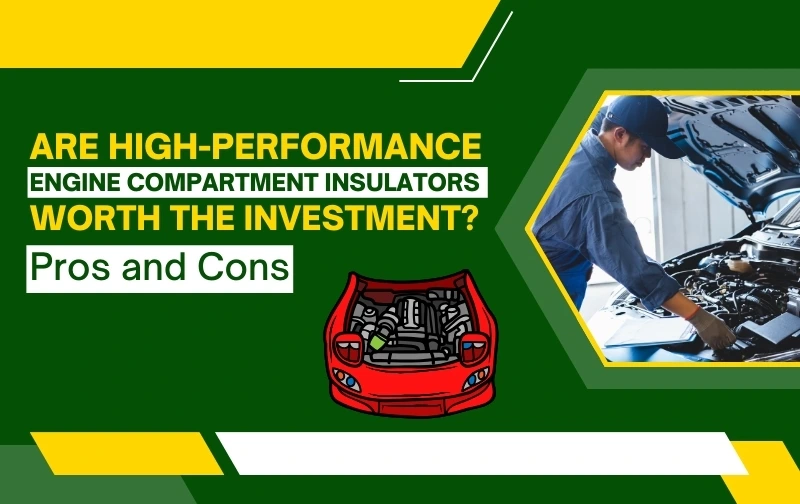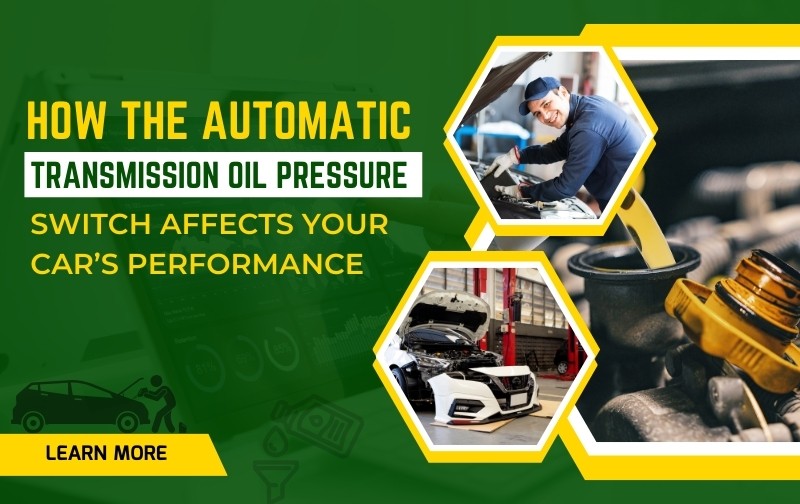When we talk about automotive performance, every detail matters. From the engine's efficiency to the aesthetic appeal of a vehicle, enthusiasts are constantly seeking ways to enhance their machines. One area that has gained attention in recent years is the use of high-performance engine compartment insulators . These specialized products promise to improve thermal management and reduce noise, but are they worth the investment? In this blog, we’ll explore the pros and cons of high-performance engine compartment insulators, focusing on their benefits, costs, and overall value.
Understanding High-Performance Engine Compartment Insulators
When we look at a vehicle's engine bay, high-performing engine compartment insulators are created to manage heat and noise in it. They serve multiple purposes:
Thermal Insulation: These insulators help maintain optimal engine temperatures by preventing excessive heat from escaping into the cabin. This can enhance comfort for passengers and protect sensitive electronic components from heat damage.
Noise Reduction: Engine compartments can be noisy environments, especially in high-performance vehicles. Insulators help absorb sound, providing a quieter ride by minimizing engine noise that enters the cabin.
Vibration Dampening: Many high-performance insulators also reduce vibrations that can lead to wear and tear on engine components over time.
Pros of High-Performance Engine Compartment Insulators
Enhanced Thermal Management: One of the primary benefits of installing a high-performance engine compartment insulator is improved thermal management. By keeping heat contained within the engine bay, these insulators help maintain optimal operating temperatures for both the engine and its components. This can lead to increased efficiency and longevity of the engine.
Improved Comfort: Having a quieter cabin is very nice and comfortable for drivers and passengers alike. Having high-performance insulators effectively diminishes noise from the engine, exhaust, and other mechanical components, leaving a more delightful driving experience. This is particularly important for those who use their vehicles for long trips or daily commutes.
Protection for Components: Excessive heat can damage sensitive electronic components located near the engine compartment. By using a high-performance insulator, you can provide an additional layer of protection against heat-related failures, potentially saving on costly repairs down the line.
Increased Resale Value: Investing in quality components often pays off when it comes time to sell your vehicle. A well-maintained car with enhanced features like high-performance insulation can attract buyers willing to pay a premium for added comfort and reliability.
Cons of High-Performance Engine Compartment Insulators
Initial Cost: One of the most significant drawbacks of high-performance engine compartment insulators is their price. While they offer numerous benefits, they can be more expensive than standard insulation options. Depending on the brand and material, prices can vary significantly, which may deter some potential buyers.
Installation Complexity: Installing a high-performance engine compartment insulator may require professional assistance or advanced DIY skills. The complexity of installation can add to the overall cost and may not be feasible for all vehicle owners.
Limited Performance Gains: While these insulators provide thermal management and noise reduction benefits, they may not significantly enhance overall vehicle performance in terms of speed or handling. For some enthusiasts focused solely on performance metrics, this might not justify the investment.
Potential Overheating Issues: In rare cases, if an insulator is too effective at containing heat without proper ventilation, it could lead to overheating issues in certain engines—especially those designed for high performance that rely on heat dissipation for optimal functioning.
Evaluating Your Needs
When considering whether to invest in a high-performance engine compartment insulator, it’s essential to evaluate your specific needs and driving habits:
Type of Vehicle: If you own a high-performance sports car or an older model with less efficient thermal management systems, investing in an insulator may yield significant benefits.
Driving Conditions: For those who frequently drive in hot climates or engage in spirited driving sessions, better thermal management can be crucial.
Budget: Assess whether your budget allows for this investment without compromising other necessary maintenance or upgrades.
Where to Buy The Best High-Performance Engine Compartment Insulators
If you decide that a high-performance engine compartment insulator is right for you, we recommend you visit BS Auto Supplies. BS Auto Supplies is known for its range of automotive parts and accessories, and they provide various options for the best high-performance engine compartment insulators tailored to different vehicles. So, why wait any longer, visit BS Auto Supplies and find out your perfect fit high-performance engine compartment insulator price.
Conclusion
In conclusion, high-performance engine compartment insulators offer several advantages that can enhance your vehicle's comfort and longevity while protecting critical components from heat damage. However, they come with considerations such as initial cost and installation complexity that potential buyers should weigh carefully. Ultimately, whether or not these insulators are worth the investment depends on your specific needs as a driver and how much you value comfort versus performance enhancements. If you prioritize a quieter ride and better thermal management in your vehicle—especially if it’s a performance-oriented model—then investing in a high-performance engine compartment insulator could be well worth it in the long run.









0 Comments